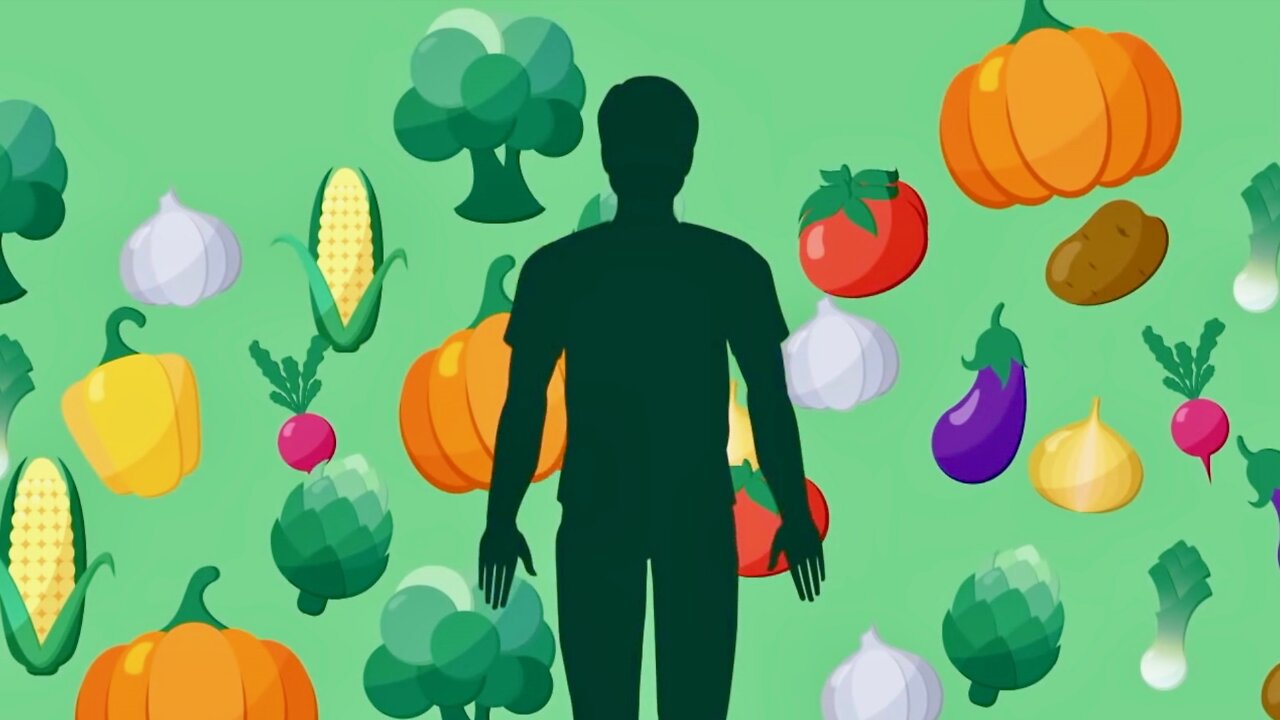Premium Only Content

Vegan Diet - Pro's and Con's
Research increasingly shows there are health and ecological benefits to a plant-based diet. But is it the right choice for you? It is a truth, now more or less universally acknowledged, that a plant-based diet can do wonders for both your health and the health of the planet. And according to a new study published in Proceedings of the National Academy of Sciences—the first of its kind to link both individual health and the Earth’s—a vegan diet, which excludes meat, fish, poultry, eggs, and dairy, can really up the ante on both fronts. The study’s results show that 8.1 million deaths can be avoided annually across the globe if more people adopt a vegan diet.
Pro: A vegan diet promotes weight loss.
One of the immediate results of adopting a vegan diet is weight loss and this, says Reed Mangels, a registered dietitian and lecturer in nutrition at the University of Massachusetts Amherst, is a definite positive that attracts many people to veganism. A vegan diet is much lower in calories than even a vegetarian diet, Mangels says, “because in addition to knocking out the meat, you’re also knocking out high fat dairy products.”
Because vegan diets are so restrictive, many first-timers may find that they’re hungrier than usual and will reach out for not-so-wise foods—highly processed carbs, sugary, fatty foods and even vegan-formulated snacks—to fill up, says Nancy Rodriguez, professor of nutritional science at the University of Connecticut, Storrs, which, of course, can also adversely impact both health and weight.
Pro: Vegans are at reduced risk of serious illness.
According to a 2015 study published in the Proceedings of the National Academy of Science, vegan diets are even more effective than vegetarian diets in protecting against hypertension, type-2 diabetes, and cardiovascular diseases. By virtue of their plant-based diet that is low in saturated fats, vegans are also less prone to obesity, and have lower blood pressure and lower cholesterol, Keller says, and the diet can reduce the risk of certain kinds of cancers.
“Assuming you’re consuming many fruits and vegetables, you’re also getting more phytochemicals and antioxidants from your diet,” she says. Both these powerful substances significantly reduce the risk of chronic illnesses.
Con: Vegan diets are lacking in some vital nutrients.
Unfortunately, a diet that excludes all animal products does have some nutritional drawbacks.
Rodriguez cites calcium, omega-3 fatty acids, vitamin B-12 and folate—all of which are present in meat and dairy—as key nutrients a vegan diet can lack. Over time, inadequate consumption of these can result in a host of problems, including loss of bone and muscle mass, she says.
The reduced or even (in some extreme cases) non-existent levels of vitamin B-12 in a strict vegan diet are of particular concern to Keller. Vitamin B-12 has many implications for the smooth running of the central nervous system and for optimizing metabolic functions and in her view, it’s very difficult to get adequate amounts of B-12 from fruits and vegetables alone.
“If you’re not getting enough B-12, you may feel weakness, fatigue, constipation, and lack of appetite,” Keller says. “Without proper amounts of B-12, an infant cannot thrive, and as we age, we have fewer of the gastric acids that synthesize the B-12 from foods, so that’s why my recommendation for B-12 is so strong.”
Pro: There are alternative sources of B-12, one of those important nutrients.
While Mangels—who has been a vegan for 25 years—agrees that vitamin B-12 is only found in meat, dairy and eggs, she also points out that there are plenty of other sources for this important nutrient that many vegans can and do include in their diets. Vitamin B-12 is present in fortified foods, including cereals and plant milk (soy and other), in tofu, and in nutritional yeast, she says.
Con: Relying on pulses for protein can bring on…discomfort.
But getting the most out of legumes, pulses and other alternative forms of protein requires paying constant attention to combining them with the right grains to ensure proper nutrition, something that many Americans still find difficult to do, Keller says, because it requires a certain amount of planning.
Pro: Veganism is more environmentally sustainable.
That it takes approximately 1,600 gallons of water to produce a single pound of beef is no secret. Scientists established that fact more than a decade ago and they have also shown that producing one pound of animal protein requires about 100 times more water than producing one pound of grain protein.
Music: The Inventor by Dhruva Aliman
Amazon - https://amzn.to/3eyYxeD
https://music.apple.com/us/artist/dhruva-aliman/363563637
https://dhruvaaliman.bandcamp.com/album/king-neptunes-travelling-merchants-and-their-adventures-in-and-beyond-the-sea
http://www.dhruvaaliman.com/
Spotify - https://open.spotify.com/artist/5XiFCr9iBKE6Cupltgnlet
#Health
#Vegan
#Vegetarian
-
 2:16
2:16
Seeker Land
1 month agoAmazing Bubble Eco House Construction - Concrete Poured On Air Shell - Binishells
75 -
 LIVE
LIVE
GritsGG
45 minutes agoSweaty Ranked Grind! Most Wins in WORLD! 3600+!
55 watching -
![[ Tekken Tuesday ] TNS Tekken Tournament Watch Party](https://1a-1791.com/video/fww1/5b/s8/1/4/a/C/g/4aCgz.0kob-small--Tekken-Tuesday-TNS-Watch-P.jpg) LIVE
LIVE
CHiLi XDD
1 hour ago[ Tekken Tuesday ] TNS Tekken Tournament Watch Party
26 watching -
 1:53:04
1:53:04
Glenn Greenwald
4 hours agoIsrael Bombs Qatar and Trump Reacts; The Hoax to Blame Russia for Jamming EU President's Plane GPS; Mamdani Soars in Polls as he Tries to Moderate on Israel | SYSTEM UPDATE #511
73.7K42 -
 2:47:57
2:47:57
Barry Cunningham
3 hours agoLIVE: PRESIDENT TRUMP ANNOUNCEMENT | IRYNA ZARUTSKA DESERVES IMMEDIATE JUSTICE! NO WAITING!
42.6K40 -
 LIVE
LIVE
cosmicvandenim
11 hours agoCOSMIC VAN DENIM | Precision Tuning | WARZONE
153 watching -
 LIVE
LIVE
Anthony Rogers
1 day agoEpisode 382 - Crystal Balls & Comedy Calls
37 watching -
 LIVE
LIVE
LFA TV
15 hours agoLFA TV ALL DAY STREAM - TUESDAY 9/9/25
801 watching -
 LIVE
LIVE
BubbaSZN
1 hour ago🔴 LIVE - 1 WEEK UNTIL RELEASE (SKATE.)
14 watching -
 LIVE
LIVE
JerryAereola
1 hour agoJerryAereola -AVOIDING THE COUNTERSNIPERS - DayZ LIVE 🔴
14 watching